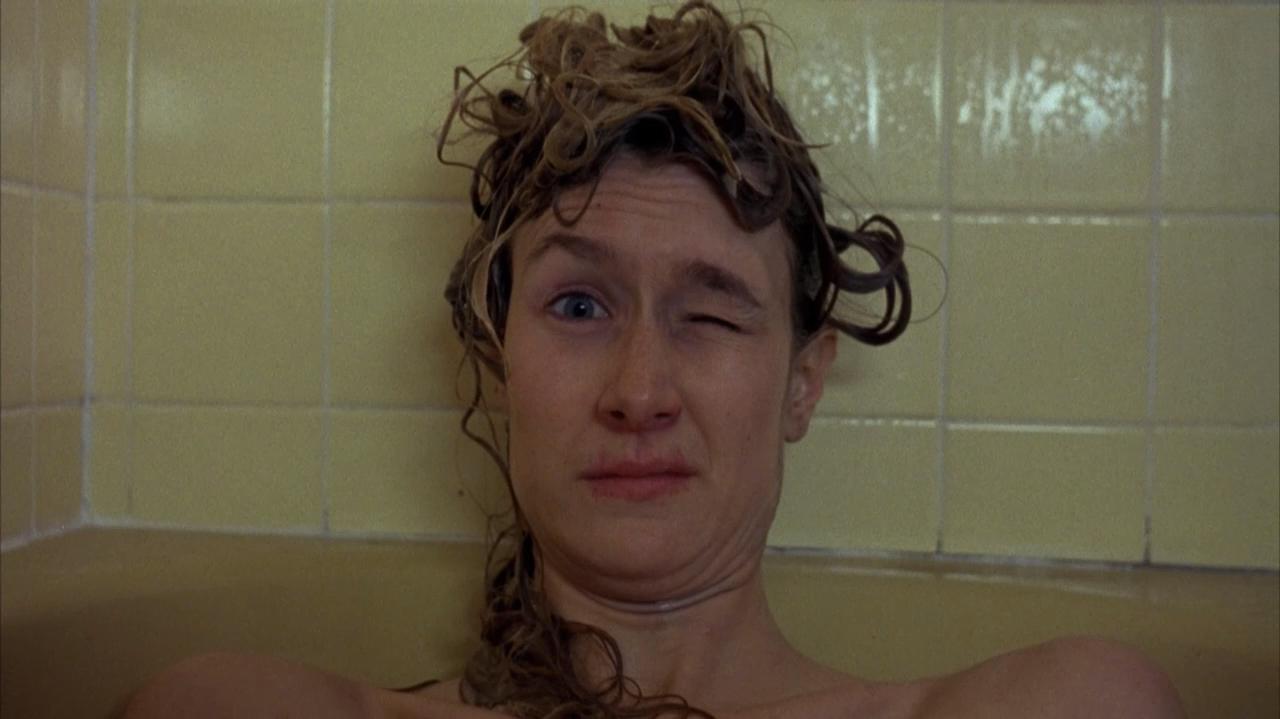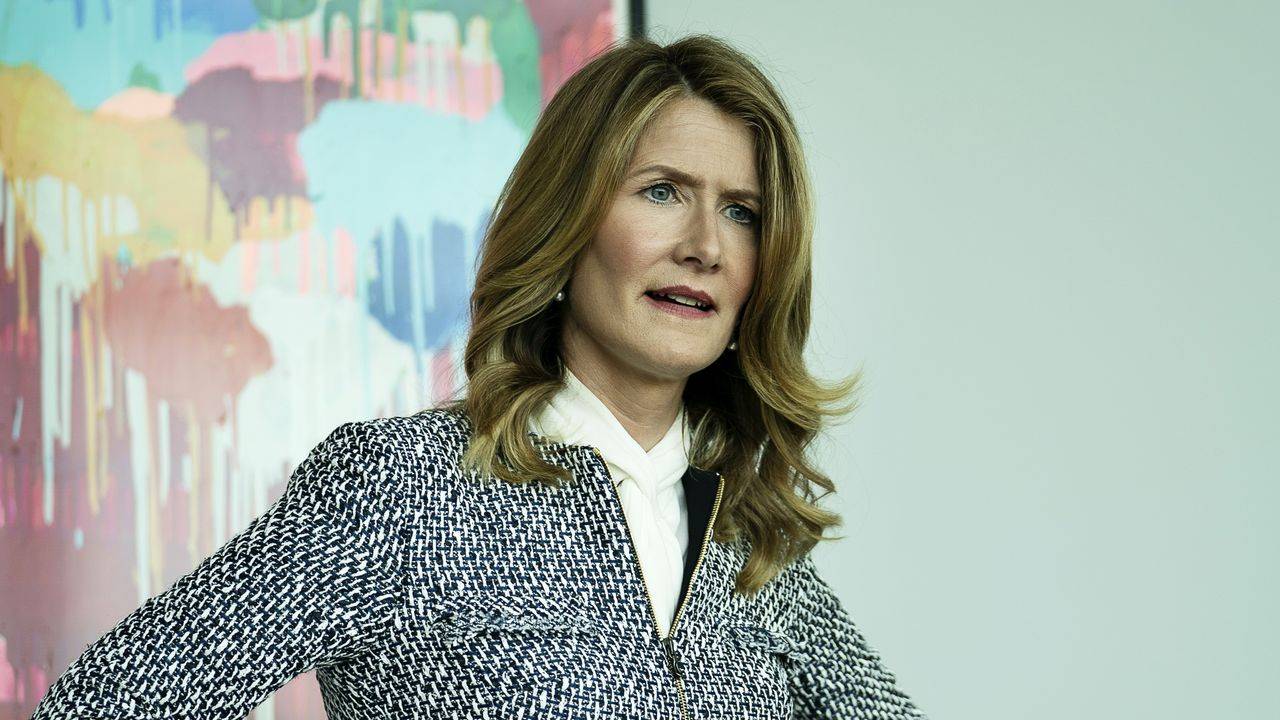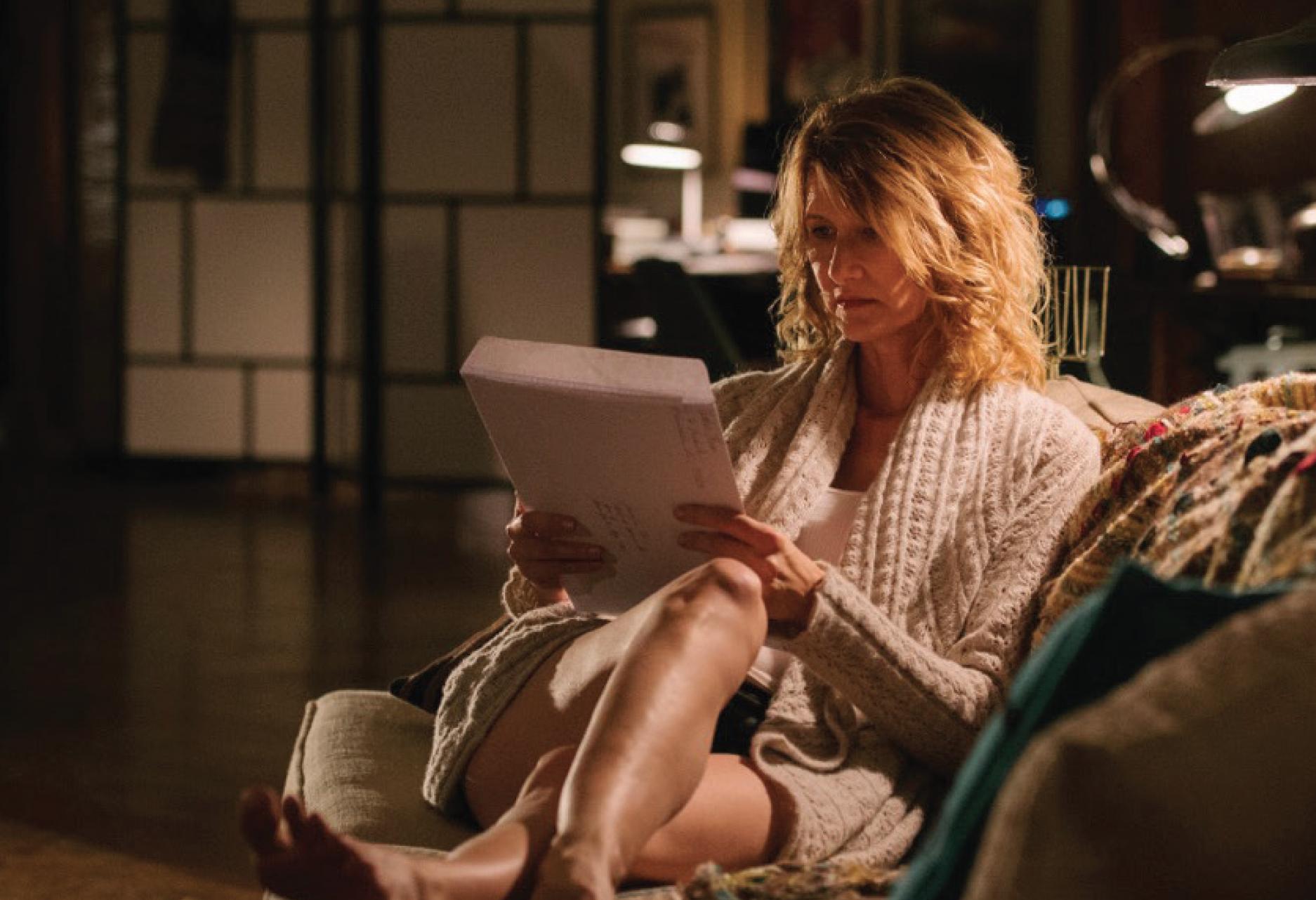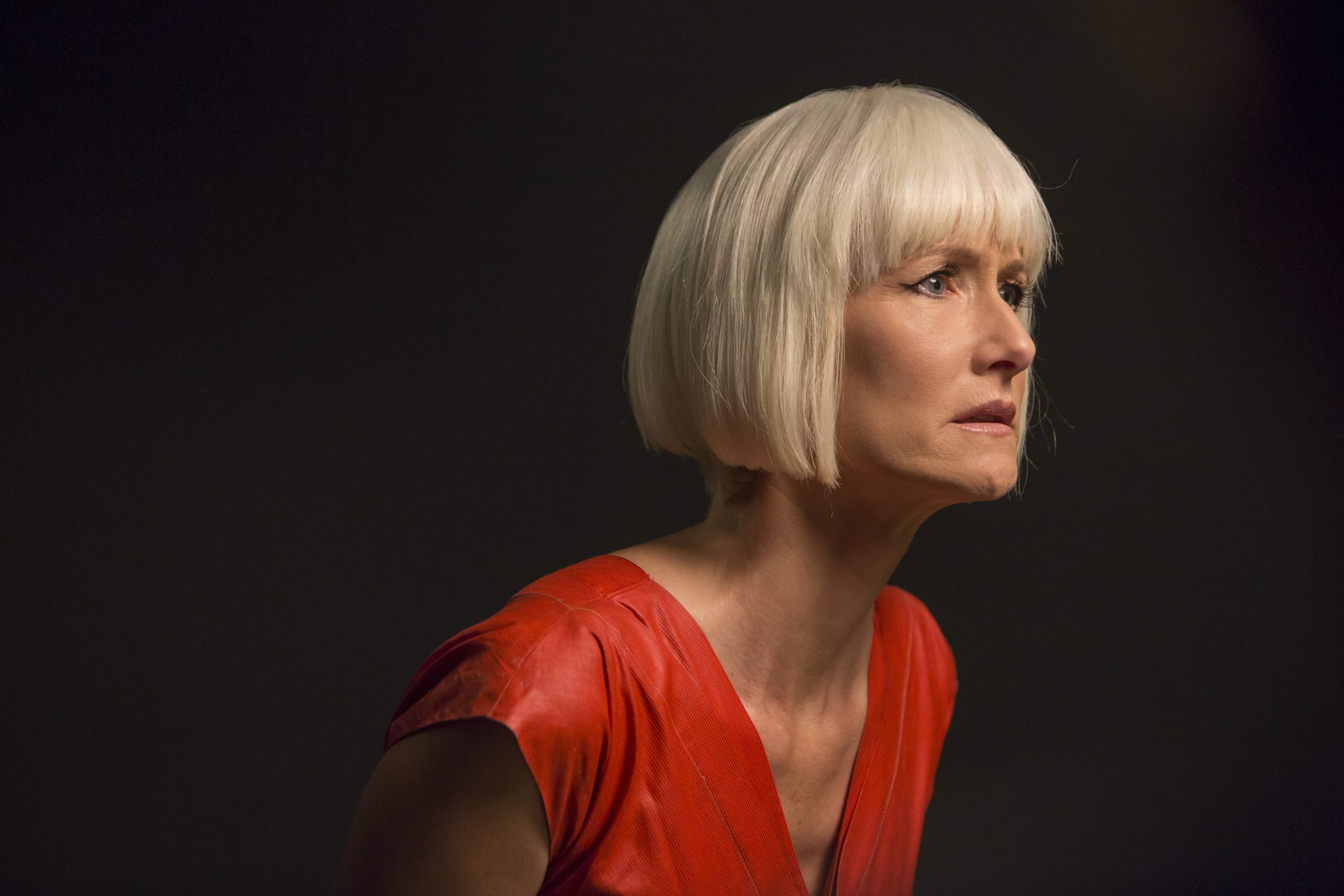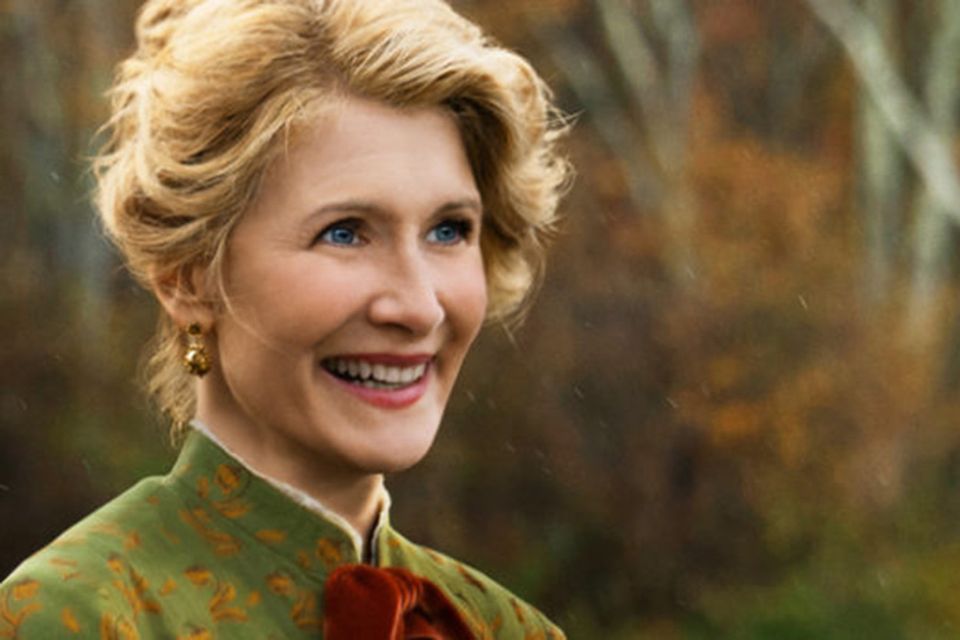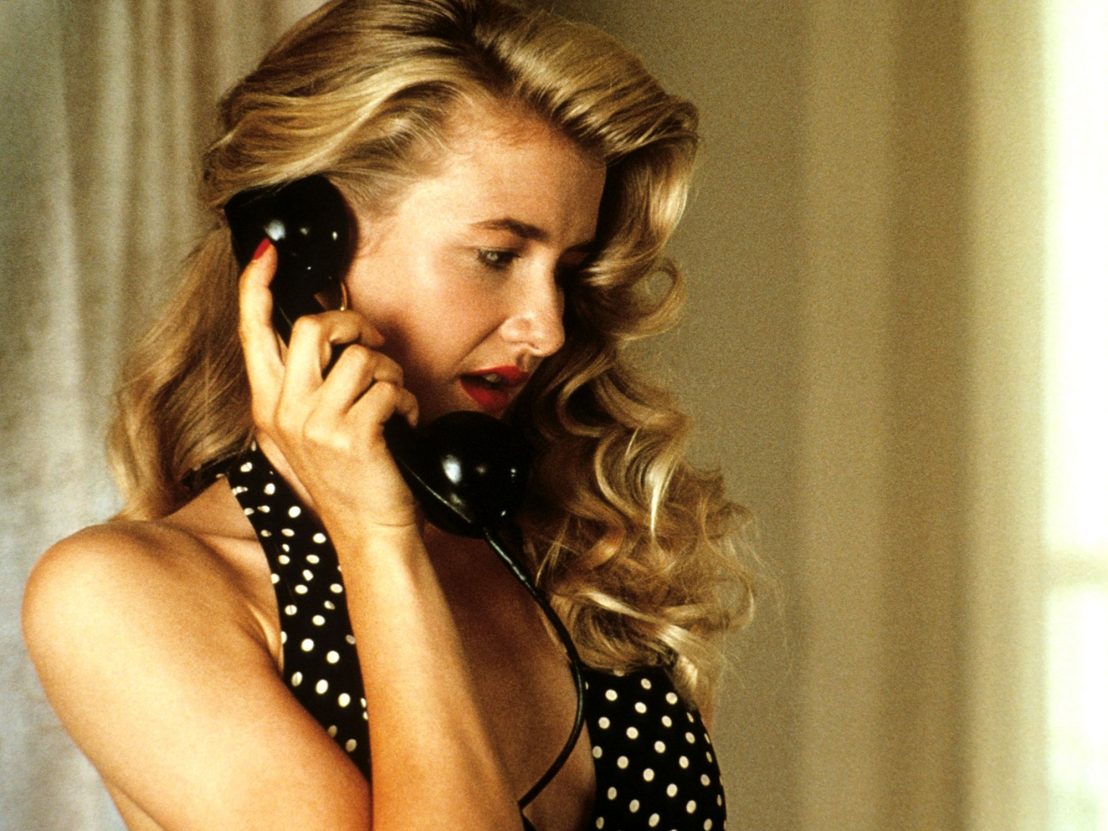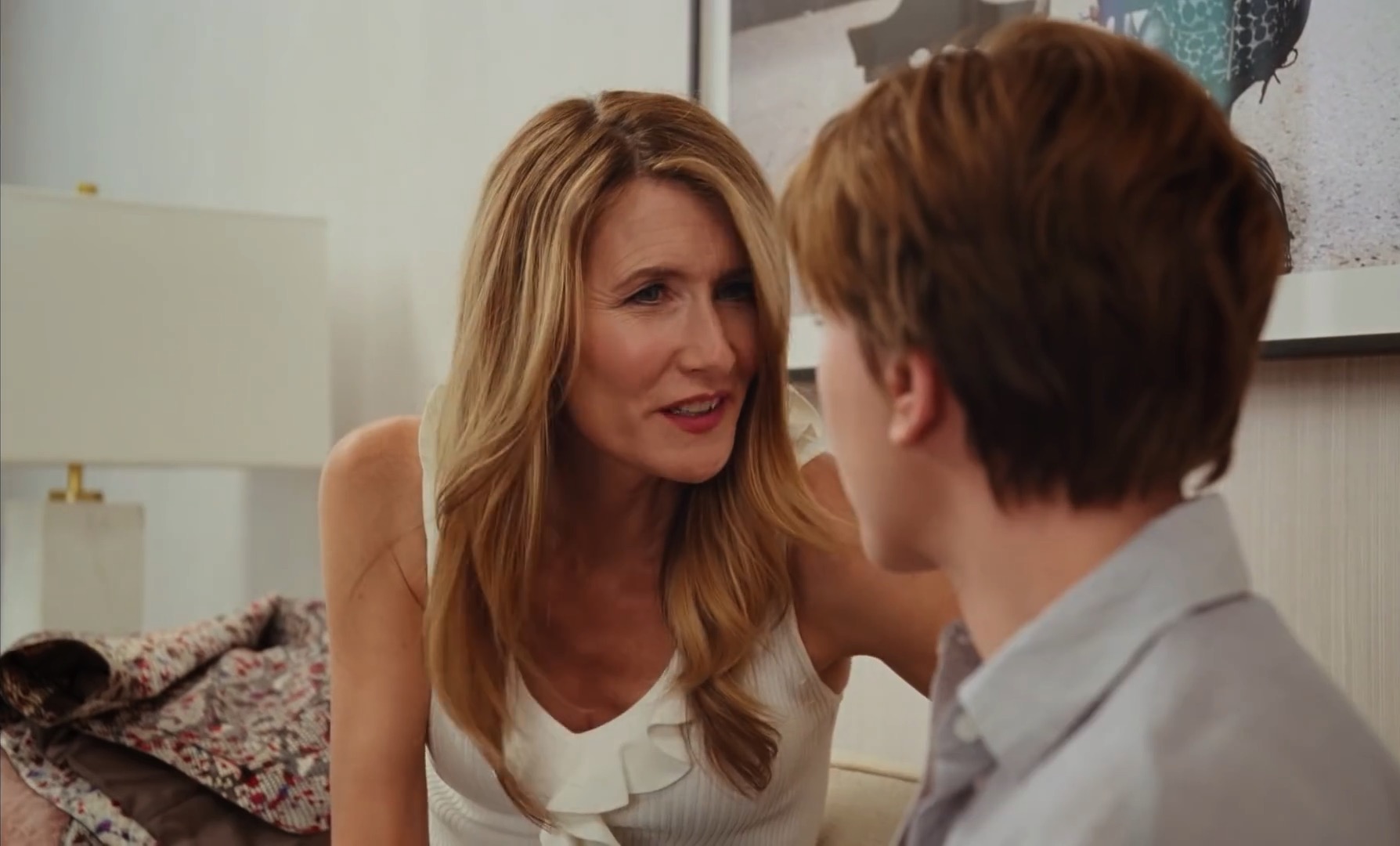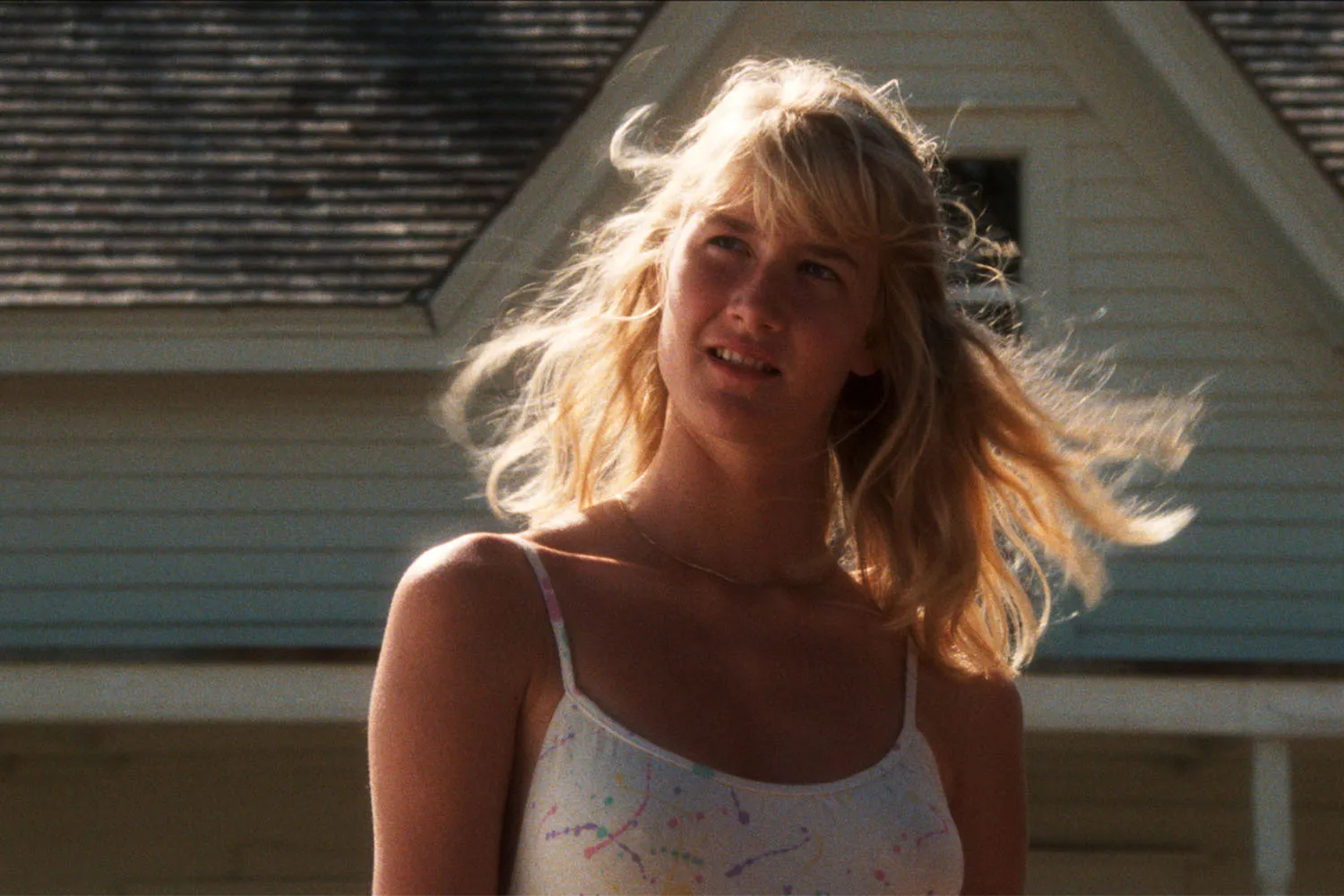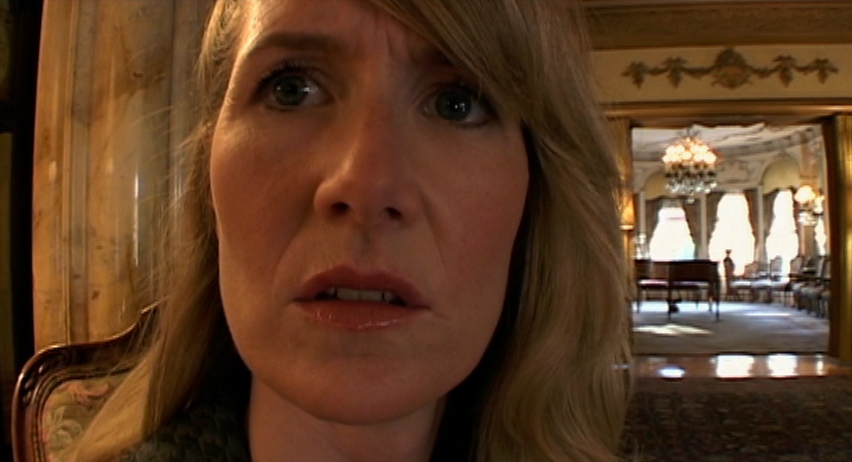Born in LA to parents Bruce Dern (“Coming Home,” 1978; “Nebraska,” 2013) and Diane Ladd (“Alice Doesn’t Live Here Anymore,” 1974; “Rambling Rose,” 1991), it’s no surprise that Laura Dern went on to pursue acting. By the time she was 18, Dern was impressing critics with her supporting role in “Mask” (1985), where she played the blind girl that Rocky Dennis—a boy who suffers from craniodiaphyseal dysplasia, played by Eric Stoltz—falls for during summer camp.
Despite Dern’s career moving steadily upward, never faulting or flopping for even one lousy role, she didn’t gain widespread recognition until recent years. Dern is one of those esteemed actresses that everyone knows but doesn’t come to mind immediately, stuck inside supporting roles over leads; nominations over wins. At least, that was the case until her overdue Oscar victory in 2020 for “Marriage Story” and her presence in the hugely popular HBO series “Big Little Lies,” for which Dern won a Primetime Emmy.
Unlike most actors, Dern doesn’t have any real doozies in her filmography. Whether it’s a one-minute cameo or headline role, Dern’s performances always hold up strong. Her film canon champions David Lynch, feminist themes, and the “Jurassic Park” franchise, and here we’ve narrowed down 10 of her best on-screen performances. Usually, we only focus on movies, but Dern has been in some knockout TV shows that deserve a mention, too.
10. Citizen Ruth (1996)
Unexpected pregnancies incur their own set of problems without the whole world pushing on their agendas. After Ruth Stoops gets the news, she immediately has left and right wingers squeezing up either side of her until she’s about to pop. Unable to catch a breath, Ruth must choose between keeping or aborting the baby before the clock runs out (and of course, no one thinks to ask what she wants…). It’s not just protestors, preachers, and activists applying pressure on Ruth. There’s also the matter of a $15,000 cheque (to keep the baby) or laxed felony charges (to abort it) to consider. Safe to say, all this intense nose-butting and media sensationalism is meant as a social satire by director Alexander Payne.
Dern’s energized central performance as the dirt-poor, drug-addled mother-to-be who unexpectedly makes front page news (as the protagonist of the 1941 classic “Citizen Kane” does, referenced in the title and Citizen Ruth’s camerawork) is tantalizingly reckless and funny. Somehow, she makes Ruth loveable—despite the fact that she’s an irresponsible criminal who chooses drugs over her four children.
9. Big Little Lies (2017)
Dern is an astute casting choice for painting a modern portrait of motherhood. Refusing to sacrifice her career (and not just in “Big Little Lies,” but in other roles), Dern plays the wealthy business mom Renata, who epitomizes female rage in more than one scene. In fact, Renata sums up the whole infuriated female premise of “Big Little Lies” in one line, screaming, “Will somebody give a woman a moment!” after ditching her slimy husband on the roadside.
Renata is ultimately a terrible person—more of a caricature than a three-dimensional person. But it’s exactly the intense, over-the-top quality Dern portrays her with that made Renata a fan favorite. Her screaming matches can be found all over YouTube—whether with her fraudulent husband or season two’s unearthed antagonist, played by Meryl Streep.
“Big Little Lies” is carried by a host of anti-heroic Californian women who approach parenting in vastly different ways. At the end of the day, they’re all trying to protect their children from the debris of chaos they created in the first place, whipped up amid murder investigations, domestic abuse, and stock fraud. For Dern’s Renata, this means hovering like a helicopter and throwing the perfect birthday party—one she’ll go to war over if ruined.
8. The Tale (2018)
Stories like this—especially true ones—can either come off as powerful, raw, and necessary or else exploitative, using abuse as a cheap way to generate shock and emotion. “The Tale” stands firmly in the former category, recounting the disturbing story of child grooming at a training camp in the 70s. Jennifer Fox’s haunting metanarrative is reflective of her own experience, manipulated by the enigmatic Mrs. G and Bill (Elizabeth Debicki and Jason Ritter), who homed her and three other girls over the summer. Learning to ride horses and run track, Jennifer continued visiting the couple on weekends, believing their sexual relationship to be mature and “normal” for a 13-year-old.
Just as Jennifer (played by Dern) is recalling the events within the film’s diegesis—journeying back to the camp in her 40s after her mother finds an essay Jennifer wrote about it as a child—”The Tale” is also a meditation on the reality of what happened from an even further point of hindsight. The whole film plays out like a kaleidoscope of retrospect and revelations as Fox traverses the malleable nature of memory and how it’s intrinsic to trauma. Such an important, personal, and difficult story required an actor that Fox (now a successful documentary filmmaker, with “The Tale” being her only narrative) could trust to do her own experience justice. Dern was the perfect casting for such a sensitive portrayal, switching gradually between passivity and full-blown panic attack.
7. Twin Peaks (2017)
David Lynch is about as anti-mainstream as you can get in terms of filmmaking and narrative style, yet “Twin Peaks” remains a hugely popular cult classic. The original stars Kyle MacLachlan as the offbeat FBI agent Cooper, who loves coffee and uses his dreams to help solve murder crimes. It’s not a satire so much as a take on soap opera television, imbued with surrealist horror and unnatural dialogue.
The Emmy award-winning hit was revived for a third season almost three decades after the first episode dropped, marketed as a separate, not-quite-spin-off throwback season called “Twin Peaks: The Return.” MacLachlan circles back to the cliffhanger ending 25 years before, and Dern joins as his white-haired, chain-smoking secretary Diane Evans—a “cross between a saint and a cabaret singer.”
Dern has reportedly never auditioned for a Lynch movie; she just bags the roles on merit and friendship alone. As such a close collaborator, it wouldn’t be fair to deny Dern a slice of the “Twin Peaks” action, and she gives the previously invisible secretarial figure a foul-mouthed, eccentrically dressed manifestation. Where Diane was originally just a prop for Cooper to sift through and rationalize his thoughts, Dern molds her into a bold, fully-fledged character.
6. Little Women (2019)
Dern rejuvenated the role of Marmee March from Louisa May Alcott’s classic novel “Little Women,” which was previously associated with Susan Sarandon from the 1994 adaptation. Greta Gerwig’s soothing revision of “Little Women” is just as cozy as the original but with more sympathy for its characters and authentic location filming in Massachusetts. Somehow, Gerwig’s “Little Women” feels modernized and polished, yet more loyal to the period setting and source material. It tells the story of the March family in non-chronological order, made up of four vastly different but loving sisters played by Saoirse Ronan, Emma Watson, Florence Pugh, and Eliza Scanlen.
Dern holds them all together as the matriarch of the family—an enduring image of a strong mother remaining kind during difficult times (in the backdrop, the American Civil War rings out, Marmee’s husband is off serving, and there’s barely enough food to put on the table). She listens to her daughters’ fits, rages, cries, and joys. She is equally generous to both her family and the community. Dern’s portrayal of Marmee feels like a dependable warm blanket on a snowy day (which it often is through the window)—exactly how Alcott intended.
Related to Laura Dern’s Performances: All Jurassic Park Movies Ranked From Worst to Best
5. Jurassic Park (1993)
Dern’s performance in “Jurassic Park” can easily be overlooked as just another cog in a Hollywood action franchise. But this isn’t any old franchise—it’s one of the first cinematic universes ever created, thanks to Steven Spielberg, father of the blockbuster. The dinosaur fantasy films have gone steadily downhill with the constant unimaginative additions of “Jurassic World,” but thankfully, they don’t leave a scratch on the industry-changing original. In a novel adaptation that would transform CGI forever (in the early 90s, that animatronic T-rex really was terrifying), “Jurassic Park” helicopters us to a theme park island populated by real-life cloned dinosaurs. What could go wrong?
Dern didn’t just play the part of Dr. Ellie Sattler from the book but amplified her importance, influence, and dimensionality to fill the space of a Hollywood fantasy production. Rather than being simply a student of Dr. Alan Grant (portrayed by Sam Neil), Ellie is upgraded to his equal in the movie version—both paleo scientists are invited to inspect the island and pass its safety check.
Safe to say, the park doesn’t garner its safety certificate, as Ellie ends up fighting off Velociraptors. Dern brings a sense of wonder and curiosity to her intellectual character—a profession that can often fall into the cynical, hard-to-impress stereotype. She returned for “Jurassic Park III” (2001) and “Jurassic World Dominion” (2022) as a staple fanservice character, but it’s her first appearance that’s remembered.
4. Wild at Heart (1990)
Dern could have easily been another typecast actress. If it wasn’t for her open-mindedness and a helping hand from David Lynch, she would have likely transitioned from a young blonde beauty to that “Jurassic Park” lady. But thankfully, Lynch has frequently collaborated with the actress—known for his weird movies and proving Dern’s versatility.
The actress’s range prevails all through Dern’s career, stretching from 1990 when she appeared as the bubbly runaway Lula Pace Fortune. Although Lula herself wouldn’t hurt a fly, she attracts danger like a bee to honey, hitting the road with her Southern outlaw lover Sailor (Nicholas Cage). Together, they make out in motel rooms, dance to metal bands, and run away from murderers.
Dern’s mother, Diane Ladd, also appears as Lulu’s mother in “Wild at Heart,” who orders the hit on Sailor. Crime and romance are common threads in road movies, but given it’s a Lynch film, “Wild at Heart” is more akin to the psychosis of “Natural Born Killers” (1994) than the whimsy of “True Romance” (1993). “Wild at Heart” won a Palm d’Or but isn’t the top Lynch pick for Dern, as she errs on the side of sexualized iconography rather than a fully developed independent character.
3. Marriage Story (2019)
Once again, Dern shows the impact a supporting role can have, winning her first Oscar as the assertive family lawyer Nora Fanshaw in “Marriage Story.” More shark than woman, Nora immediately bats down the lethargy of her client’s rival lawyer when Nicole and Charlie Barber (Scarlett Johansson and Adam Driver) file for divorce. Like an aggressive game of tennis, the court finally reaches an agreement for the couple’s separation, though Nora secures a slightly better deal for Nicole to emphasize the film’s feminist favoring. This ties into one of Marriage Story’s most iconic scenes, where Nora delivers an impassioned monologue on the history of (unjust) gender dynamics within the family unit and society as a whole. “We can accept a perfect dad […], but you [Nicole] will always be held to a different, higher standard.”
Nora’s insightful qualities are not tampered down to please others . She’s fiery, demanding, and clever to a fault, guiding our deductions on whose side to take. Although Noah Baumbach’s Netflix drama is mainly about the past, present, and future of its complex central couple, we need Nora to navigate and vocalize Nicole’s POV as a symbol of how women have been disregarded far too often in such circumstances.
2. Smooth Talk (1985)
“Smooth Talk” deserves more talk than it’s currently getting. Washed away with time, the glowing critical reviews upon release were not enough to make “Smooth Talk” retain its recognition 40 years on…even with a 4K restoration from The Criterion Collection in 2020. The majority of its praise rests on the shoulders of an 18-year-old Dern, who isn’t afraid to hold the weight of a long, silent headshot, conveying the depth of her character’s emotion through facial expressions alone.
And it’s a lot of emotions that are brewing inside Connie Wyatt. Fifteen, fidgety, and flirty, Connie yearns to explore her sexuality but is tied down by an insufferable mother and small-town conservatism. The only place she feels free to play around is at the mall, where she hangs out like any bored teen of the 1980s, eyeing up potential boyfriends.
Like the restless and naïve 15-year-old girl in “Badlands” (1973), Connie falls for a seductive, James-Dean-bad-boy-older-type, whose charm and petty crime soon melt into true, unpredictable danger. Dodging the rose-tinted tropes of other coming-of-age dramas, “Smooth Talk” blends the universal experience of teenage girlhood—regardless of era—with the threat of potential violence.
1. Inland Empire (2006)
“Inland Empire” is the most difficult David Lynch film to comprehend, and for anyone familiar with his work, that’s a big statement. From “Eraserhead” (1977) to “Blue Velvet” (1986, also co-starring Dern), Lynchian has become its own adjective for all things hypnagogic, unsettling, transient, confused (intentionally), and all-out bizarre. Usually in a creepy but not completely terrifying way.
“Inland Empire” occurred well into Lynch’s established filmmaking career, decades after he’d first discovered meditation as a path to divine (and weird) creative inspiration. Like all his work, “Inland Empire” is an experimental dive into the psyche with A-list actors, this time including Dern, Justin Theroux, Harry Dean Stanton and Jeremy Irons,
Once again dodge-balling those typecast roles, Dern plays the victim of a cursed film production who is haunted by different characters and “dark consequences.” Sets turn into reality, anthropomorphic rabbits speak in tongues, and film stock is switched out for digital fish-eye shots. Only a truly great actress could pull off the protagonist of a movie this surreal, and Dern executed it without so much as a wince.

